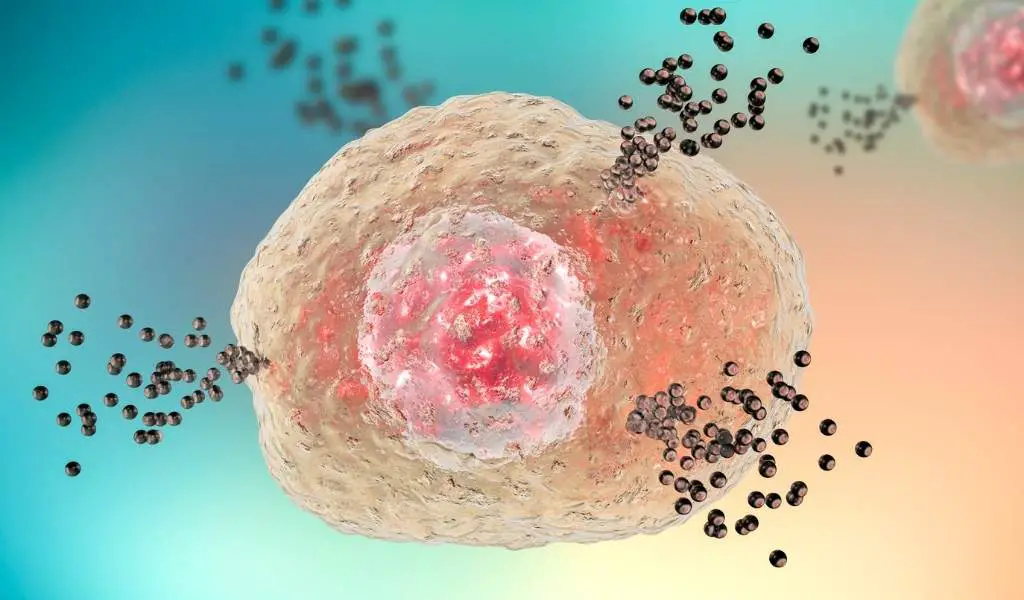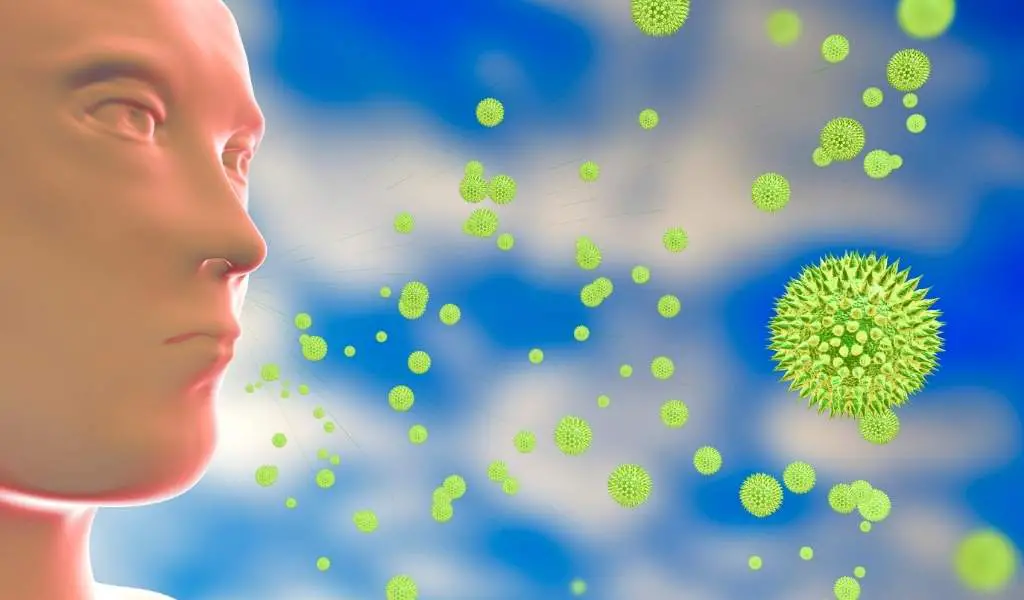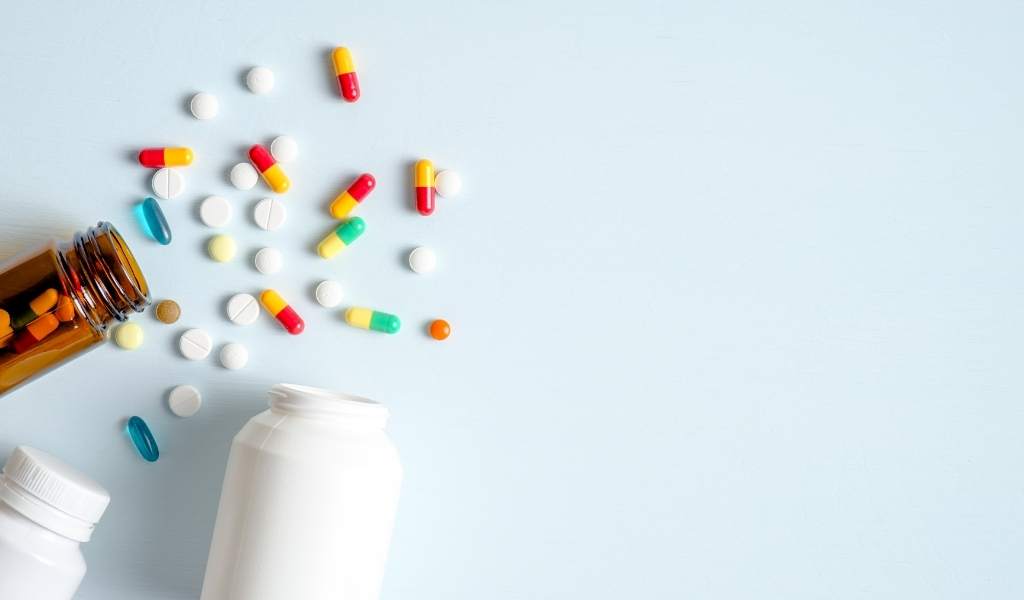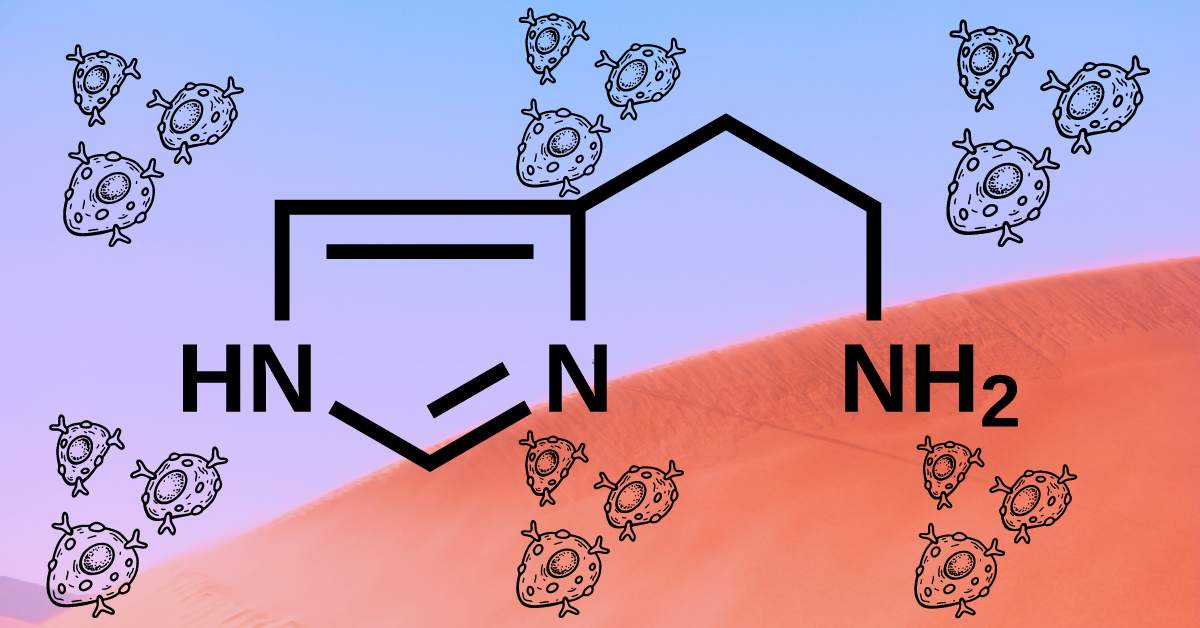Are you looking for ways to lower histamine naturally? If you’re grappling with the annoyance of elevated histamine levels, rest assured, you’re in good company. High-histamine symptoms such as hives, pounding headaches, and never-ending runny noses can be utterly exasperating!
But fret not, because we’re about to embark on a journey and reveal ways to lower histamine levels naturally. Everyone with histamine intolerance is a little different, but these histamine-lowering strategies will work well for most people if you’re consistent with them.
What is Histamine?
Before diving into these strategies, let’s ensure we understand histamine’s role in your body. While many associate histamines with antihistamine medications, it’s a chemical released by your immune system.
When your body encounters an allergen, immune cells called mast cells release histamine as part of the immune response. (1) This release is your body’s way of signaling that it’s reacting to something in your environment or something you’ve consumed.
Histamine performs a useful function and is an important part of your body’s immune response. Plus, it plays a role in these functions too:
- Release of stomach acid when you eat a meal.
- As a neurotransmitter, to regulate appetite, mood, and sleep habits.
- Contraction of the muscles that line your blood vessels, airways, and gut.
However, histamine becomes problematic when you can’t break it down quickly enough and your level becomes too high. When histamine builds up in your body, it can trigger various symptoms like itchy or puffy eyes, congested nasal passages, sneezing, coughing, and even skin rashes. (2)
And as you know, some people have histamine intolerance, making it hard for their bodies to break down histamine, leading to unexplained issues like headaches, digestive problems, mood changes, and skin issues.

10 Ways to Lower Histamine Naturally
Now that you have a better understanding of histamine, let’s explore eight natural ways to lower its levels and alleviate discomfort.
Adopt a Low-Histamine Diet
The number one thing you can do to lower histamine naturally is to adopt a low-histamine diet. One common cause of histamine intolerance is consuming high histamine foods. Even if you aren’t allergic to these foods, foods high in histamine can increase your body’s histamine level and trigger symptoms.
That’s one of the purposes of this blog, to help you understand which foods are high in histamine.
To address this, adopt a low histamine diet that eliminates these trigger foods and reduces inflammation. Focus on fresh, histamine-friendly foods like fruits, vegetables (avoid high histamine ones), fresh meats, seafood (only the freshest), and whole grains. Steer clear of histamine-rich foods, such as citrus fruits, aged meats, and more. (3)
Read Labels
Reading labels is crucial when dealing with histamine intolerance. This condition, which often goes under the radar, can lead to a slew of unpleasant symptoms like headaches, hives, and digestive issues when triggered by high histamine foods.
So, why the label obsession? Well, consider this: histamine isn’t just lurking in obvious suspects like aged cheeses and fermented goodies; it’s hiding in seemingly innocent foods like tomatoes and dried fruit. Plus, some additives, depending upon your sensitivity, may cause issues for you too. (4)
Without label scrutiny, you’re playing a histamine roulette that could result in discomfort. Being label-savvy is your secret weapon in this histamine battleground, allowing you to dodge those sneaky histamine landmines and savor your meals without unexpected histamine-induced surprises.
Use an Air Purifier
Choosing a top-notch air purifier equipped with a HEPA filter is a smart move to reduce contact with histamine-triggering allergens and toxins. These purifiers are skilled at filtering out common culprits like pet dander, dust, pollen, and mold spores, creating an environment free from histamine woes.
If you’re like many people, you have seasonal allergies (5) or allergies to indoor factors, like dust mites or mold. When you’re exposed to these allergy triggers, you release histamine, and it increases your body’s histamine burden.

Reduce Your Exposure to Pollen
Pollen is a well-known histamine trigger, so it’s essential to minimize your exposure, especially during high pollen seasons. Stay informed about pollen levels using weather apps and try to stay indoors when counts are high.
Also, consider washing your hair before bedtime to prevent pollen and dust from transferring to your pillowcase. It’s all about those little precautions that make life more comfortable amidst nature’s histamine-rich offerings.
Drink More Water
Water does more than just quench your thirst; it acts as a natural ally in the battle against histamine-related discomfort. When your body is well-hydrated, it’s better equipped to flush out excess histamine, thwarting its accumulation and the subsequent onset of troublesome symptoms.
Imagine this: dehydration can be a trigger for increased histamine production, akin to the way seasonal allergies set off their familiar woes. But, fear not, for proper hydration acts as a shield against this histamine surge, potentially offering relief from allergy-like symptoms.
Now, here’s the science behind it. Water’s magical properties go beyond mere hydration. It has the remarkable ability to dilute irritants in your system, thus helping to maintain a balanced histamine response.
This means that by consuming enough, you help your body fine-tune its histamine reactions, ensuring they stay within reasonable bounds.
Manage Stress with Histamine Intolerance
Managing stress is important for controlling histamine intolerance symptoms. Stress can trigger more histamine release (7), making symptoms worse. Here are some stress management tips for dealing with histamine intolerance:
- Identify stress sources: Find out what’s causing your stress and try to reduce or remove it. If it’s work-related, consider delegating tasks, especially during allergy season. If it’s because you’re taking on too much, learn to say no.
- Practice relaxation: Techniques like deep breathing, meditation, and yoga can help reduce stress and improve symptoms.
- Get enough sleep: Aim for 7-8 hours of sleep each night. Lack of sleep can increase stress levels and make histamine intolerance symptoms worse.

Eat a Vitamin C Rich Diet
Vitamin C is a natural antihistamine, capable of reducing histamine levels and alleviating allergy symptoms. To amp up your vitamin C intake, consider weaving non-citrus gems into your diet. Add broccoli, cauliflower, the sweetness of blackberries, the allure of blueberries, and other low-histamine foods high in vitamin C to your shopping cart.
But avoid taking a vitamin C supplement without consulting with your physician. Vitamin C supplements may increase your risk for developing calcium oxalate kidney stones if you’ve had them in the past or are at high risk. (6)
Consider Taking a Low-Histamine Probiotic Supplement
A healthy gut plays a crucial role in managing histamine levels and immune response. Probiotics help maintain a diverse gut microbiome, strengthening your immune system’s ability to manage histamine effectively. (8) Additionally, a robust gut lining may reduce the risk of histamine intolerance.
Again, talk to your physician before starting a probiotic supplement. Also, know that not all probiotics are safe for histamine intolerance. This article delves into how to choose a probiotic if you have histamine intolerance.
Be Aware of Medications as a Histamine Source
Certain medications have the potential to trigger an increase in histamine levels within your body. That’s because some prescription drugs can throw off the balance of key enzymes responsible for breaking down histamine, namely DAO and HNMT. These enzymes act as the body’s natural histamine regulators.
For example, some antibiotics inadvertently disrupt the delicate equilibrium of histamine processing. Similarly, antidepressants might inadvertently add to your physical discomfort by interfering with these enzymes.
Now, shifting the focus to gastrointestinal medicines, antiarrhythmics, antihypertensives, muscle relaxants, and narcotics, you might not expect them to have any connection to histamine, but they too can play a role in this intricate histamine tango. These medications may unknowingly sway the body’s histamine levels.
But wait, there’s more. Over the counter and prescription nonsteroidal anti-inflammatory drugs (NSAIDs)have the potential to influence how your body processes histamine. It’s as if the world of medicine is full of surprises, and histamine metabolism is one of its hidden secrets.

Explore Natural Antihistamines
For symptomatic relief, you can turn to natural antihistamines like quercetin (9) and turmeric (10), a natural compound with anti-inflammatory activity. These substances can help mitigate allergic reactions and inflammation. We’ll delve into natural antihistamines further in a future article.
But keep this in mind. Natural antihistamines aren’t a one-size-fits-all solution. Before embarking on a supplement journey, consult with a healthcare provider. And don’t underestimate the power of a diet overhaul.
Gradually introducing more histamine-friendly foods can be a game-changer in your quest to tame histamine intolerance symptoms. It’s a multifaceted approach to regain control over your body’s histamine intricacies.
Also, explore the world of antihistamine herbs.
Use a Neti Pot for Sinus Relief
A neti pot can provide natural support during allergy seasons by irrigating your nasal passages, helping to clear irritants like pollen, dust, and excess mucus. Regular use of a neti pot can improve breathing and reduce nasal swelling. It’s the kind of natural support that whispers its benefits in every clear, unhindered breath you take.
Conclusion: Reduce Histamine Through Lifestyle
High histamine levels can lead to distressing symptoms that affect your quality of life. If you’re looking for ways to lower histamine naturally, these strategies can help. Remember that these approaches may vary in effectiveness for individuals, so it’s essential to tailor them to your specific needs.
References:
- Branco ACCC, Yoshikawa FSY, Pietrobon AJ, Sato MN. Role of Histamine in Modulating the Immune Response and Inflammation. Mediators Inflamm. 2018 Aug 27;2018:9524075. doi: 10.1155/2018/9524075. PMID: 30224900; PMCID: PMC6129797. https://pubmed.ncbi.nlm.nih.gov/30224900/
- Zhao Y, Zhang X, Jin H, Chen L, Ji J, Zhang Z. Histamine Intolerance-A Kind of Pseudoallergic Reaction. Biomolecules. 2022 Mar 15;12(3):454. doi: 10.3390/biom12030454. PMID: 35327646; PMCID: PMC8945898.
- Durak-Dados A, Michalski M, Osek J. Histamine and Other Biogenic Amines in Food. J Vet Res. 2020 Apr 30;64(2):281-288. doi: 10.2478/jvetres-2020-0029. PMID: 32587916; PMCID: PMC7305651.
- “Q&A: Food additive intolerance | BMC Medicine | Full Text”. Bmcmedicine.Biomedcentral.Com, 2023, https://bmcmedicine.biomedcentral.com/articles/10.1186/1741-7015-9-115. Accessed 28 Aug 2023.
- “Allergies – Symptoms and causes – Mayo Clinic.” 05 Aug. 2022, https://www.mayoclinic.org/diseases-conditions/allergies/symptoms-causes/syc-20351497.
- “Ascorbic Acid Supplements and Kidney Stone Incidence Among Men: A ….” 11 Mar. 2013, https://jamanetwork.com/journals/jamainternalmedicine/fullarticle/1568519.
- Eutamene, H., Théodorou, V., Fioramonti, J., & Buéno, L. (2003). Acute Stress Modulates the Histamine Content of Mast Cells in the Gastrointestinal Tract Through Interleukin‐1 and Corticotropin‐Releasing Factor Release in Rats. The Journal of Physiology, 553. https://doi.org/10.1113/jphysiol.2003.052274.
- Dev, S., Mizuguchi, H., Das, A., Matsushita, C., Maeyama, K., Umehara, H., Ohtoshi, T., Kojima, J., Nishida, K., Takahashi, K., & Fukui, H. (2008). Suppression of histamine signaling by probiotic Lac-B: a possible mechanism of its anti-allergic effect.. Journal of pharmacological sciences, 107 2, 159-66. https://doi.org/10.1254/JPHS.08028FP.
- Ramesh,, H., & Nadaf, R. (2019). Evaluation of antihistaminic activity of quercetin by using histamine induced bronchospasm and clonidine induced catalepsy models. International Journal of Basic & Clinical Pharmacology. https://doi.org/10.18203/2319-2003.IJBCP20190994.
- Luber, R., Rentsch, C., Lontos, S., Pope, J., Aung, A., Schneider, H., Kemp, W., Roberts, S., & Majeed, A. (2019). Turmeric Induced Liver Injury: A Report of Two Cases. Case Reports in Hepatology, 2019. https://doi.org/10.1155/2019/6741213.


